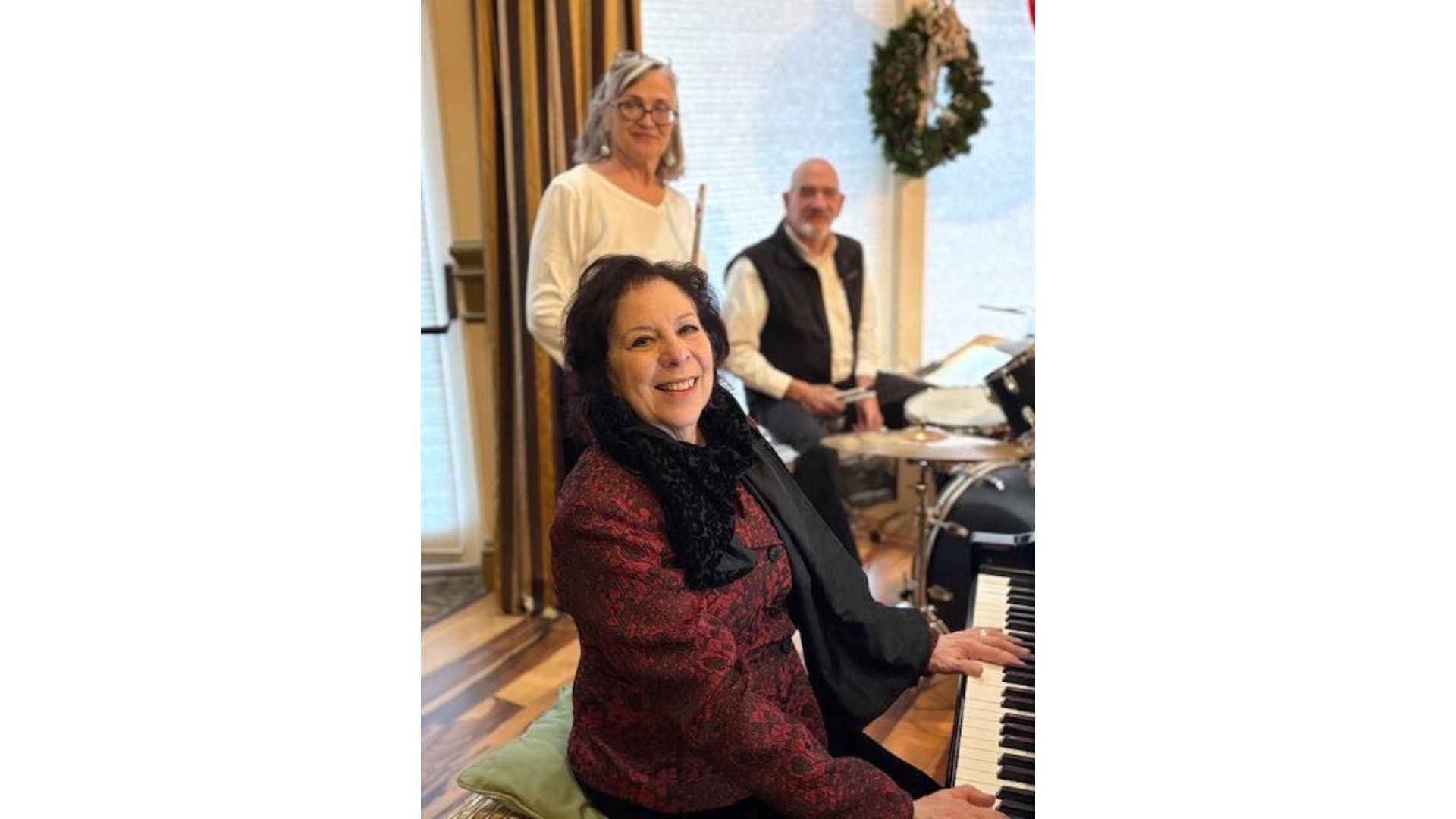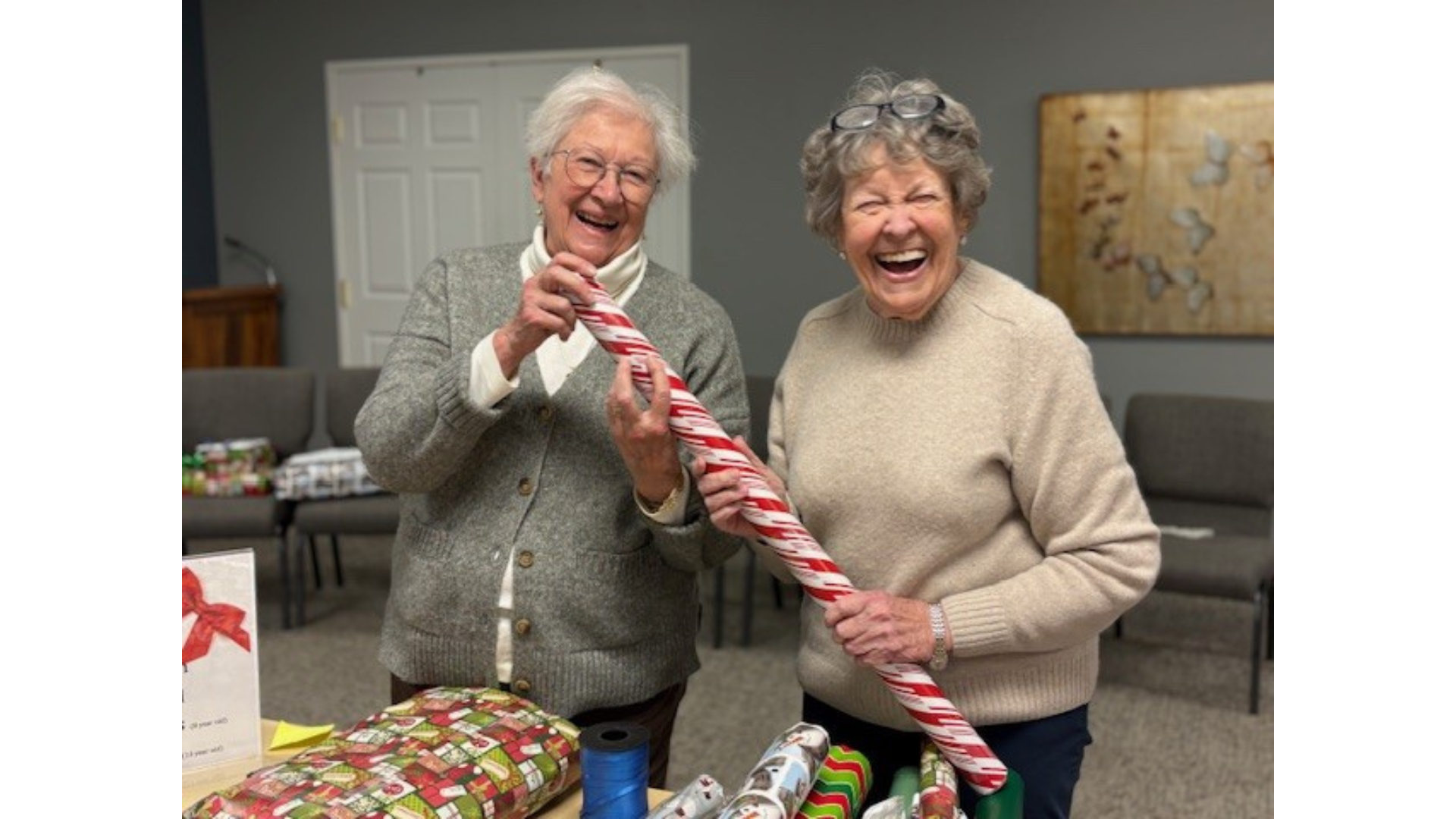Margaret Blanck — A leap of faith


From humble beginnings
While growing up in rural Caldwell County, North Carolina in the 1930s and 1940s, Margaret Blanck learned a lot about caring for the land, for animals and for people. In fact, caring for people would become her life’s work. Helping her father milk cows at a young age and caring for the residents of the boarding house her parents operated, gave Margaret a unique education and perspective on life, and helped her develop empathy and sympathy for those around her.
“I grew up on a dairy farm, and I learned how to milk cows, by hand at first, when I was nine years old,” said Margaret. “I helped care for the animals and garden. All of us had responsibilities.”
Referring to her parents and six siblings, Margaret recalls life growing up in Gamewell, NC, just outside of Lenoir. She spent summers at 4H camp and later working as a waitress at an elegant, rustic hotel in Blowing Rock. Earning $500 her first summer as a waitress allowed her to attend Women’s College in Greensboro to study nutrition. Graduating in 1950, Margaret landed a job with the North Carolina Cooperative Extension coordinating programs for Girls 4-H in Anson County in eastern NC.
“Working with those young girls was such a delightful responsibility,” Margaret said. “I enjoyed watching them blossom.”
While working with the 4-H program, Margaret would meet her future husband, Robert (Rip) Collins. The two married in 1953, moving to Raleigh and then Charlotte. Raising four children together, Margaret and Rip loved traveling as a family — camping throughout the southeast. The two were married until Rip’s passing in 1981.
In 1968, with anti-poverty programs in full swing in the Charlotte area, Margaret was hired by the Mecklenburg County Extension Service as the Director of Homemaking Education Programs for the Charlotte area.
“I worked as an Agricultural Extension Agent in the poverty pockets in Charlotte,” said Margaret. “I had a staff of 31, and was responsible for training, budgeting, planning and coordinating for each of four centers located in low-income areas of Charlotte.”
This experience would prove invaluable to Margaret and serve her well later in life as she settled in a poverty-stricken city half a world away.
Africa calls

“The thing I’m most grateful for is that early on in life my mother taught me to face my fears. And so, I did that — I trusted that I would be okay,” Margaret said. “I wanted to do something that would really put me in a position where I needed to trust God, and so I had this incredible opportunity.”
In 1990, Margaret read an article in an Episcopal bulletin about missionary work in third-world countries. She filed that away in her memory thinking, ‘Someday I might try that’. As the next few weeks went by, she kept thinking about that article. And so, she contacted Food for the Hungry, an international organization dedicated to meeting the physical and spiritual needs of people in some of the most poverty-stricken countries in the world. That spring, Margaret scheduled a two-week vacation in Phoenix, AZ to attend training for the nonprofit.
“For training, I had to spend two nights on the streets of Phoenix as a homeless person. It was amazing,” Margaret said of her experience training for the adventure that would take her thousands of miles from her North Carolina home to Ethiopia.

With her state-side training complete, Margaret set out for Addis Ababa, the capital of Ethiopia — a bustling city with crowded streets where people, donkeys and sheep mixed with the city’s traffic of cars, trucks and busses. Although somewhat overwhelmed and frightened as a single woman alone in a foreign city, Margaret relished every part of her new surroundings. “They needed someone over there, and what they wanted was someone to write proposals and I could do that, so that’s what I did. I wrote proposals to start programs,” Margaret said.
The late 1980s and early 1990s were a time of extreme famine in much of Africa — especially in Ethiopia. “The famine was across the entire country, but some regions were worse than others, Margaret recalled. “I happened to be stationed in the capital city of Addis Ababa, that’s where the orphanage was, so they were not as affected as some of the outlying areas.”
Margaret recalls that being new to Africa, there was a deep language barrier at first. “But the nice thing was, they were beginning to have organizations from other countries come into the region so, they were teaching the kids some English in the schools. They were better at learning English than I was at learning their language,” said Margaret.
At night, children from the orphanage would come to Margaret’s small apartment to visit and talk. She would entertain them with pictures and stories of America. “They would come to play Bingo,” she said. “My sponsors from back home would send me little gifts and things and I would use those as prizes. I got cardboard and made Bingo cards. I got some corn to use as pellets, and they would play Bingo.”
Recalling her time working in Ethiopia, Margaret said, “I loved being at the orphanage and working with those kids so, of course, that was my favorite part of what I did there.” Although she loved her time in the capital, she also found time to travel to other parts of the country and experience other aspects of Ethiopian culture, traveling to the northern city of Lalibela, where she visited world-famous rock-hewn churches carved directly from the surrounding mountains and cliffs.

These notable structures are hand-carved from solid stone and are considered the largest monolithic churches in the world. “I traveled to the northern part (of Ethiopia) where they have those churches that are so famous,” Margaret said. “One of them you have to go down steps into the ground to walk around the church. And then another one has a hand-carved pool.”
When asked if she still keeps in touch with the children of the orphanage, Margaret smiles and says, “Oh, yes! Some of those kids are now in the states. One’s in Arizona, and some of the others are in Texas. They called me Momi. We say Mother or Momma, but they say Momi. So, I’m Momi to them.”
A kind of homecoming
After spending years in Africa, Margaret made her way back home to North Carolina, where she remarried at the age of 74 — marrying an Episcopal priest with a penchant for travel, as well. Margaret and Chuck Blanck would spend the next decades traveling the world visiting more than 10 countries on their adventures. “I married an Episcopal priest, and he was appointed Spiritual Director for the Diocese, and so he was expected to study spirituality,” said Margaret. “They gave him three weeks’ vacation and another three weeks to study spirituality somewhere. So, we got to go to all those places because of his work. I lucked out!”
Greece, Germany, Ireland, Italy, Scotland and more, were all places the two would visit on their travels. The two would continue traveling together until Chuck’s declining health forced them to store their suitcases. That was when they decided to relocate to Ardenwoods.
“There are really interesting people here. Most of the residents have done something really special with their lives and it’s interesting to have that variety of experience that you can have with the people here,” said Margaret. “And of course, I like the meals. I was a nutritionist by training, and so I know they are good meals. And I’m so glad that it’s a nice, comfortable place. I just have so much to be grateful for.” Adding, “I’ve had an amazing life!”




